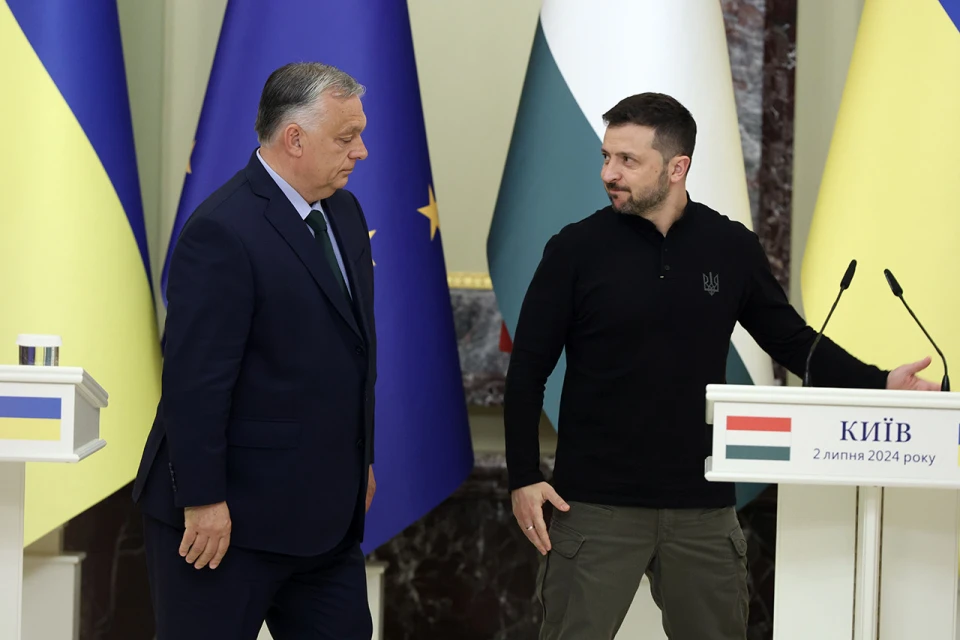
Orban's visit to Ukraine: Espreso explains reason
Hungary has started the presidency of the EU and is pushing Kyiv to the negotiating table with the Kremlin
Content
- Why Orban came to Ukraine: A call for a ceasefire and hope for concessions towards national minorities.
- The presidency of Hungary in the European Union: What powers it gives, and Budapest's plans regarding Ukraine.
- Orban's new group: Will the Hungarian leader manage to organize a pro-Russian lobby in the European Parliament?
- What to expect in Ukraine: Does Orban want to harm Kyiv, and will he succeed?
On Tuesday, July 2, 2024, Hungarian Prime Minister Viktor Orban made an unannounced visit to Kyiv, meeting with Ukrainian President Volodymyr Zelenskyy, and unexpectedly called for a "ceasefire." The day before, on July 1, Hungary began its six-month presidency of the European Union, vowing to shift European politics. On June 30, Orban, alongside far-right (and pro-Russian) leaders from Austria and the Czech Republic, announced a new political group aiming to become one of the largest in the European Parliament.
These events signal a trend: the rise of radical, Kremlin-friendly movements in the EU, with Hungary playing a leading role until January 1, 2025, when Poland takes over the EU presidency. For Ukraine, this poses a threat of reduced support from the EU, but the situation isn't critical yet.
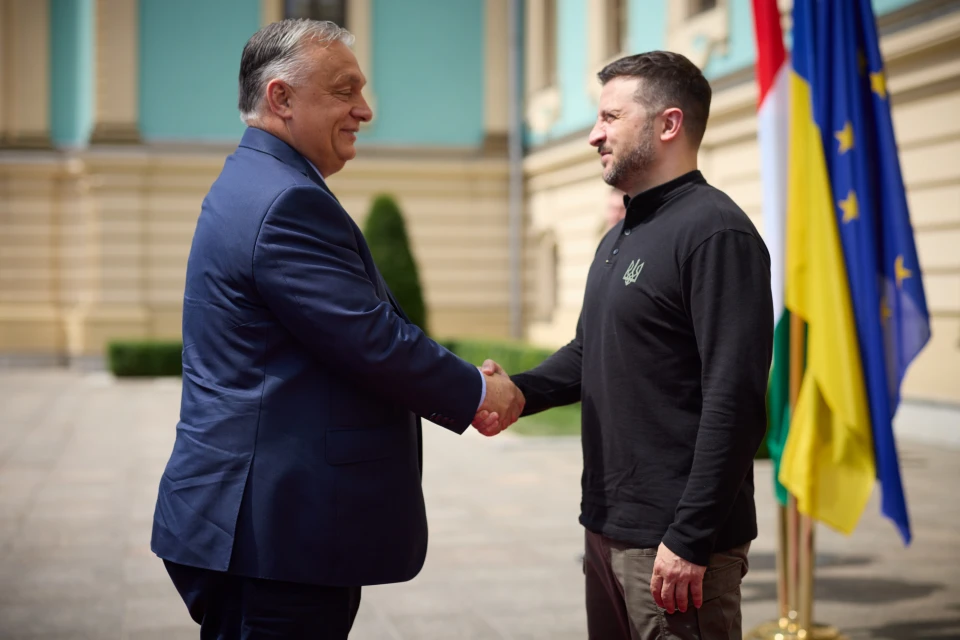
Photo: President's Office
Why Orban came to Ukraine: A call for a ceasefire and hope for concessions towards national minorities
Orban’s visit to Ukraine marked his first trip as the temporary "president of the Council of the EU," a title Hungarian officials are already using. By the way, Zelenskyy and Orban had agreed to meet in Kyiv last Thursday at the European Council summit (remember that emotional dialogue under the cameras?).
"My first trip after assuming the Presidency of the Council of the EU led me to Kyiv for a meeting with President Zelenskyy. I assessed the possibility of a deadline-bound ceasefire, that could provide an opportunity to speed up peace negotiations. I will report my findings to the Council immediately," Viktor Orban wrote on X after his meetings in Kyiv.
"We appreciate President Zelenskyy’s peace initiatives. I shared my view that these initiatives are slow and difficult due to the rules of international diplomacy. I asked the president to consider a quick ceasefire to speed up negotiations. I assessed the possibilities and discussed this with the president. I will prepare a report on these negotiations for the European Council to facilitate necessary decisions," he said about his talks with Zelenskyy.
Hungary’s active peacekeeping surprised and irritated Brussels because the Council of the EU, which includes representatives from all 27 EU states, did not give Orban any mandate to start such negotiations, even as the head of the presiding state.
"Orban didn't get any mandate from the 27 EU states to negotiate a cease-fire with Ukraine. Clearly, his goal is to start 'consultations' on the matter, hoping to use Hungary's upcoming EU presidency to bring this up in the EU Council and influence events. We'll see how this unfolds, but I doubt it will succeed," a high-ranking Brussels diplomat told Espreso anonymously.
Meanwhile, President Zelenskyy's Office received Orban's peace initiative without negativity and wasn't surprised by it.
"Today we will discuss how to bring a fair and lasting peace closer," the President of Ukraine wrote on the X network before the talks began.
"Hungary participated in the first Peace Summit and supported the summit's communique, showing Hungary's readiness to contribute to real, long-term security both in our country and in Europe. Today, we discussed in detail how Hungary can lead in preparing the second Peace Summit," Volodymyr Zelenskyy said in his final statement.
"We're looking at the opportunity to host the second Summit this year. We're eager and can handle all the preparations in the coming months. We appreciate Hungary's support and active involvement," he added.
During the first peace summit in Bürgenstock, Switzerland, on June 15-16, 2024, Ukrainian officials, including President's Office head Andriy Yermak, mentioned that Russian representatives might join the second peace summit.
Even now, Russia remains in the picture. Concurrent with news of Orban's talks with Zelenskyy, Hungary's Foreign Minister had a phone call with Russia's Foreign Minister Sergey Lavrov, reportedly "at Hungary's initiative." The nature of their discussion—whether information was exchanged or instructions given—is open to speculation.
While the ceasefire and peace talks were central to Orban's visit to Ukraine—clear from Hungary's statements—the two leaders discussed a range of neighboring issues: trade, cross-border cooperation, infrastructure, and energy. Based on their outcomes, a bilateral agreement is in the works— a document Zelenskyy believes will regulate all Ukraine-Hungary relations, potentially using a reciprocal approach.
Good news: the two presidents agreed to open the first Ukrainian school in Hungary, funded by the Hungarian state.
"As many Ukrainian schools as needed will be opened. It's crucial for Ukrainians to feel at home in Hungary," Viktor Orban emphasized. He also expressed hope for "addressing the issues of the Hungarian national minority."
The latter is more challenging because Hungary issued an ultimatum on 11 points, demanding a reversal of Ukrainian language laws from Yanukovych's era and granting significant (unconstitutional) autonomy to Hungarian minorities.
It's worth noting that the issue of national minorities was also discussed during Szijjártó's conversation with Lavrov on the same day, according to a press release from the Russian Foreign Ministry.
"Discussing the Ukrainian crisis, both ministers stressed the need for Kyiv to ensure the rights of all ethnic minorities living in the country unconditionally," the statement reads. Russia's interest in this national issue is unsurprising, as Moscow, with Hungary's assistance, is positioning itself to demand increased official use of the Russian language in Ukraine.
Moreover, Ukraine's implicit promise to fulfill Hungarian demands regarding national minorities allowed the approval process for negotiating Ukraine's EU accession to move forward. Consequently, Hungary abstained from the relevant vote, and formal negotiations commenced in Luxembourg on June 25, 2024, less than a week before Hungary assumed the EU presidency.
The presidency of Hungary in the European Union: What powers it gives, and Budapest's plans regarding Ukraine
Viktor Orban arrived in Kyiv not just as Hungary's prime minister but primarily as the head of the European Union Council, as Hungary assumed the EU presidency on July 1, 2024.
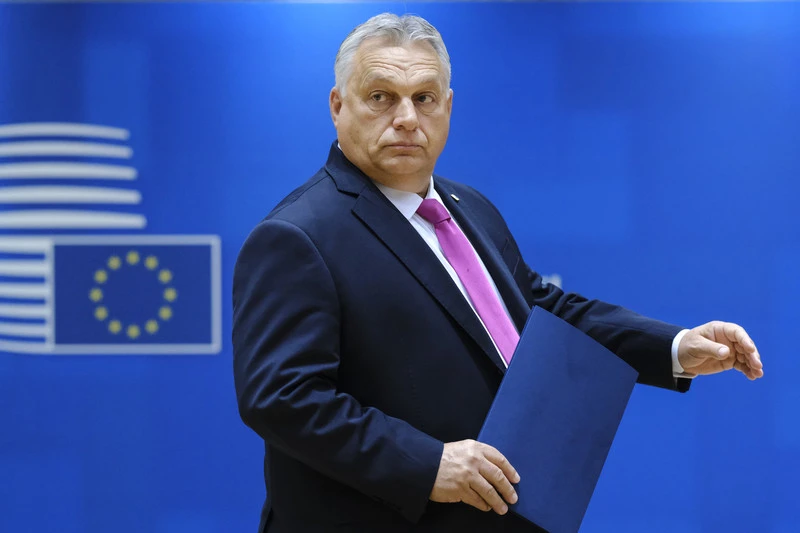
Photo: European Council
The EU presidency, specifically of the Council of the EU, rotates among member states every six months. Belgium chaired the Council in the first half of 2024, followed by Hungary. Poland will take over in the first half of 2025, followed by Denmark, Cyprus, and Ireland.
During its presidency, Hungary oversees the Council of the EU, a key EU body involving representatives from all 27 member states. It leads and conducts Council meetings at all levels, from ambassadors to ministers.
Hungary began its EU presidency with the motto 'Make Europe Great Again' (MEGA), echoing the campaign slogan of US presidential candidate Donald Trump that led to his 2016 victory, 'Make America Great Again' (MAGA).
Before assuming the presidency, each state outlines its priorities for the next six months. Hungary has identified seven key areas:
- Enhancing EU competitiveness.
- Strengthening EU defense policy.
- Ensuring consistent enlargement policy based on achievements. Here, Hungary's stance on Ukraine is clear: Budapest considers Ukraine unready for accession talks and argues against granting Ukraine preferential treatment compared to Balkan states that began EU integration earlier.
- Combatting illegal migration.
- Shaping future cohesion policies.
- Supporting EU agrarian policies benefiting farmers.
- Addressing demographic challenges.
As you can see, Hungary's priorities appear peaceful and neutral. However, there are expectations that Hungary's EU presidency will attempt to slow down all pro-Ukrainian initiatives within the European community. Now, Ukraine is also lobbying for peace talks and a ceasefire. Just yesterday, Orban emphasized, "The main goal of Hungary's EU presidency will be to bring Europe closer to peace, especially in light of the ongoing Russian-Ukrainian conflict."
However, it's important to note that the EU presidency offers significant opportunities for PR and raising issues to the pan-European level, but it doesn't grant real power or the ability to direct EU foreign policy. This works in Kyiv's favor.
According to an Espreso interlocutor from diplomatic circles in Brussels, Hungary will not directly lead the EU Council on International Affairs, which is overseen by EU High Representative Josep Borrell. Similarly, the European Council, led by President Charles Michel, will operate independently. "Hungary's influence on both of these platforms will be quite limited," he reassured.
Orban's new group: Will the Hungarian leader manage to organize a pro-Russian lobby in the European Parliament?
On June 30, 2024, a day before Hungary's EU presidency began, a notable event unfolded in Vienna, catching the attention of European politics enthusiasts. Hungarian Prime Minister Viktor Orban, leader of the far-right and openly pro-Russian Austrian Freedom Party FPÖ Herbert Kickl, and former Czech Prime Minister Andrej Babiš of the pro-Russian ANO party ("YES!")—often dubbed the "Czech Trump"—announced the formation of a new alliance called "Patriots for Europe", aiming to establish a prominent political group within the European Parliament and European political landscape.
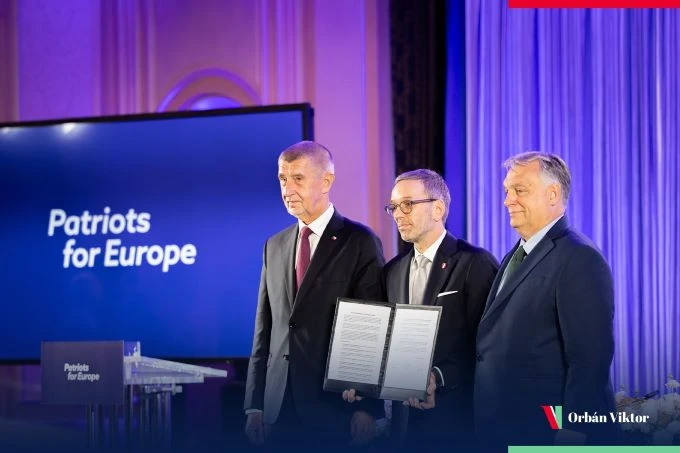
Photo: Viktor Orban's X
Orban emphasized during a press conference on June 30 that their goal is to create a robust right-wing political force in Europe.
"Political change in Europe has begun! Today, we formed a new political group with Andrej Babiš and Herbert Kickl. Europeans demand peace, order, and development. The current Brussels elite offers only war, migration, and stagnation... Today, the strongest Austrian, Czech, and Hungarian parties have united. Our aim is to become the leading force in European right-wing politics," he said.
To form a political group in the European Parliament, they need at least 23 MEPs from seven EU member states. Orban's party currently holds 10 seats, Babiš's party has 7, and Kickl's Austrian Freedom Party has 6—meeting the minimum requirement. They are seeking MEPs from four more states to solidify their group in the EP.
On July 1, the Portuguese far-right party CHEGA! ("Enough!"), led by André Ventura, announced its potential affiliation with Patriots for Europe, marking the fourth party to join Orban's alliance.
The question arises about how the Portuguese party, historically aligned with pro-Ukrainian positions, will coexist within the same group as pro-Russian political forces, considering the entire Portuguese political elite and society. Did "Patriots for Europe" agree on their strategy for Ukraine before coming together? Espreso correspondents sent inquiries to the CHEGA party office and parties like Fidesz, FPÖ, and ANO, but as of the publication of this material, none have responded.
Orban still needs to find at least three more deputies from three EU states. According to European politicians involved in the process speaking to Espreso correspondents, negotiations are ongoing, and the list of invitees is intriguing. Orban's group may potentially unite with Robert Fico's Smer party, Poland's PiS (Law and Justice) party, Matteo Salvini's Lega party (Lega per Salvini Premier), and even Marine Le Pen's French National Rally. There are also rumors that the new far-right group in the EP may include at least one right-wing MEP from Estonia (possibly Jaak Madison) and Greece.
Additionally, the Polish PiS stated the day before that there's a "50-50" chance it may leave its current group, ECR (European Conservatives and Reformists). With 20 deputies in the new European Parliament, PiS's departure would significantly impact the informal leader of ECR, Italian Prime Minister Giorgia Meloni (Brothers of Italy party), as the group would lose its position as the third-largest in the European Parliament. Instead, "Orban's group" could take third place.
The ID group (Identity and Democracy) would suffer further losses: Matteo Salvini's Lega (8 MPs) and, notably, Marine Le Pen and Jordan Bardella's "National Rally" (30 MPs) could depart.
Therefore, the new "Patriots for Europe" group could potentially gather more than 80 seats in parliament, securing third place among the largest political groups in the European Parliament. We will soon see if this becomes reality; Babiš mentioned that the official announcement of the European Parliament political group's creation will occur next week.
What to expect in Ukraine: Does Orban want to harm Kyiv, and will he succeed?
The presidency of Hungary in the EU is seen as a challenging period for Kyiv, but it's not expected to significantly impact the EU's policy on Ukraine. At least, that's the hope in Brussels.
"Yes, Hungary, as the state presiding over the EU, can delay certain Ukrainian issues through agenda-setting and initiating discussions on topics like national minorities in Ukraine. But when it comes to crucial aid for Ukraine, the other 26 EU members have a common will and can push through necessary decisions despite Hungary's resistance. And half a year is a short time; it will pass quickly," an EU official told Espreso, speaking anonymously.
Creating a political group in the European Parliament is more complex. Even if this group unites all far-right MPs, which is unlikely, it won't achieve an absolute majority. The initial statements from the new group focus on pan-European issues without directly addressing Ukrainian matters, though they do include "peace" rhetoric.
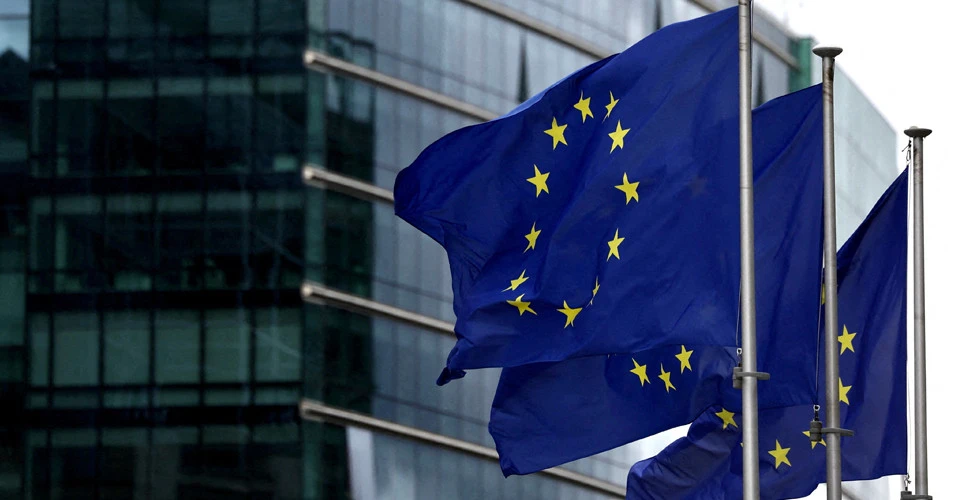
Photo: Reuters
The newly formed group, currently with just three members, has already published a manifesto advocating for a European future.
The new political group will also demand an end to "pressure" on individual EU member states via the European budget and will insist on preserving the veto rights of all 27 states—something Hungary has recently found problematic. Thus, there's no immediate threat to Ukraine.
However, we should remember that the rhetoric typical of this group's members, which often echoes Russian narratives, including the call to stop military aid to Kyiv and to capitulate to Putin, will now be more prominent in the European Parliament's sessions and discussions.
This political group will gain PR opportunities, additional funding, influence on the distribution of positions within the European Parliament and its committees, and participation with voting rights in the Conference of Presidents, which sets the EP's agenda and strategic plans.
The first session of the European Parliament's tenth convocation will be held on July 16-19 in Strasbourg. During this session, the European Parliament will elect a president, 14 vice-presidents, and five quaestors. MEPs will also decide on the number and size of standing committees and subcommittees and their members.
The final session agenda, with possible additions, will be adopted by the Conference of Presidents (the President of the EP and leaders of political groups) during their meeting on July 11.
For official recognition, political groups must notify the European Parliament's leadership of their name, political declaration, and composition by July 15, 2024.
- News




